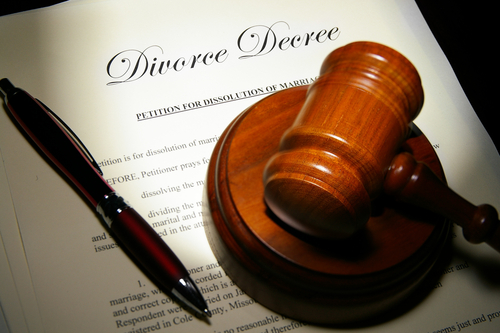Traditional Divorce
What is a Traditional Divorce?
Traditional Divorce, or sometimes called an adversarial divorce, is the most common type of divorce. In this type of divorce, each party hires their own attorney and those attorneys negotiate a settlement. If a settlement is not reached, the attorneys prepare for and participate in an evidentiary trial before a Judge. The Judge then determines how the case should be resolved.Litigation Services Available
Dissolution:
Our office will walk you through every aspect of your divorce, including custody, visitation, child support, alimony, real and personal property division, retirement account division, debt division, etc. Once an agreement is reached, Attorney Bodie will accompany you to court to have the Agreement approved by the Judge (known as an uncontested divorce). If no agreement is reached, Attorney Bodie will work closely with you to prepare for a trial and present your case to a Judge.Post-Judgment:
Unfortunately, sometimes there is a need to return to court after the final judgment to either modify a term of the divorce order/agreement or to enforce a term.
Children’s issues are always modifiable including custody, visitation, child support, health insurance coverage and tax exemptions. Although you and your ex thought all was done when you signed your Separation Agreement, there are many times when parties need to change certain terms of the divorce decree to make it work better for all involved.
If you are having trouble collecting child support or alimony or your ex-spouse is not cooperating with parenting time details or transfers of bank accounts, Attorney Bodie can file motions on your behalf to enforce any term of your judgment. These are referred to as contempt motions and if your ex-spouse is found in contempt (“willful violation of the court order”), the Judge may require your ex-spouse to pay all or a portion of your legal fees.Custody/Parenting Schedules:
Custody disputes are extremely sensitive issues. You need an attorney who understands what it means to be a parent and how precious our children truly are. Attorney Bodie is a parent and she knows how important quality time with your children is. She also understands, unfortunately, that many parents use their children as pawns during divorce proceedings. Attorney Bodie is ready to help you fight for custody or additional parenting time with your children.Relocations:
Attorney Bodie has successfully represented parents on both sides of relocation cases. Whether it be fighting for the right to move with your child to another state or country or fighting the other parent not to leave Connecticut with your children, Attorney Bodie is here for you. Relocation is a very difficult request which requires the party wishing to move with the children to prove that the benefits to the children will outweigh the detriment the move will cause on the children’s relationships with the parent left behind. Call for a consultation to hear more.
Important Forms
- Notice of Automatic Orders (pdf) - These are orders made by the court to protect the parties and their children during the process of the divorce. They become effective when the initial paperwork is served on your spouse.
- Financial Affidavit (pdf) - The court requires parties in all divorce and custody cases to prepare a financial affidavit. The Affidavit is a financial snapshot of your income, expenses, debts, and assets.
- Parenting Education Information Brochure (pdf) - All parents of minor children in divorce and custody cases are required to complete the parenting education program before their case can be finalized. The cost of this program is currently $125.
-
Application for Restraining Order - If you or a loved one is being physically threatened or has already been physically assaulted by a spouse or family member, the family court can grant you a restraining order for protection. Said restraining orders can last up to six months before another hearing would need to occur for any further extension.
Affidavit - Second form needed in addition to the application

Representation of Children
Many cases involving custody of children are highly contested. It is often necessary for the Court to appoint a representative for the children. Depending on the age, maturity and details of the contested case, the Judge will appoint either a Guardian ad Litem (GAL) or an Attorney for the Minor Children (AMC) or on the rare occasion both.
GAL vs. AMC
A GAL is an individual that is appointed in a custody dispute to represent the best interests of a child. Said individual does not need to be an attorney but in most cases it is. An AMC is an attorney that is appointed in a custody dispute to advocate for the child’s wishes. The Court usually determines which type of counsel will be appropriate on a case by case basis.
GAL
As a Guardian ad Litem, Attorney Bodie will meet with both parents individually at the onset of the case to become acquainted with the custody/parenting issues and allegations. She may ask the parents to sign releases so that she may speak with professionals in the children’s lives, such as teachers, doctors, therapists, etc. Then Attorney Bodie will schedule home visits in both parents’ homes to meet the other residents as well as see the child interact with each parent. Upon completion of the information gathering, Attorney Bodie will present a recommendation to the parties on all parenting-related issues. The parents then can either accept the recommendation, work with the GAL to tweak the recommendations or reject the recommendation altogether and take the issues to trial. If this should happen, the GAL would be asked to testify at trial regarding said recommendation.
AMC
As an Attorney for the Minor Child, Attorney Bodie will meet with the child to speak about the pending parenting issues. In most cases, Attorney Bodie will ask to meet the child in both the Father’s home and the Mother’s home. She does this because it is not abnormal for children to sometimes change their stories or answer questions differently depending on which parent they are with. Attorney Bodie sometimes even requests that the child come to our office to talk as well. Once Attorney Bodie has determined what the child’s wishes are, she advocates as any other attorney would for those wishes. What the child and AMC discuss is confidential as in any attorney-client relationship. If the case should need to proceed to trial, Attorney Bodie would be allowed to present witnesses of her own and cross examine any other parties’ witnesses.